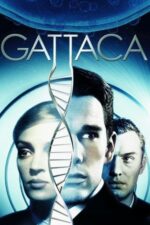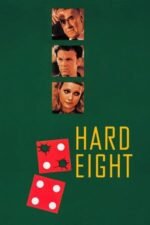The Tangled Web: Exploring Cheating in Cinema (and Why It’s So Compelling)
Okay, let's talk about cheating. Not the kind where you peek at your neighbor’s test answers – though that is pretty awful – but the cinematic kind. Infidelity, deception, bending the rules… it’s a recurring theme across genres and decades, and for good reason: it’s messy, complicated, and deeply human. It forces us to confront uncomfortable truths about desire, loyalty, and what we really want from our relationships (and sometimes, ourselves).
You might be thinking, "Cheating? That's just sensationalism!" And sure, some films exploit the drama for cheap thrills. But when handled well – and there’s a lot of variation in how it’s handled – cheating becomes a fascinating lens through which to examine societal expectations, personal vulnerabilities, and the fragility of trust.
Take Cloud 9, for example. It's not about salacious details; it's about a woman questioning her life after three decades with her husband. The affair isn't presented as inherently "bad," but rather as a symptom of deeper dissatisfaction and a desperate search for something more. It’s a nuanced exploration, far removed from the exploitative territory some films fall into.
Then you have something like Graphic Desires, which leans much harder into the darker side. The film uses infidelity to explore obsession and the dangers lurking in our increasingly digital lives – a very contemporary anxiety. We've all felt that pull of connection online, that temptation to stray from established boundaries. It’s unsettling because it taps into something we recognize within ourselves.
But cheating isn’t always about romantic betrayal. The Luckiest Man in America offers a completely different perspective. Michael Larson wasn’t breaking hearts; he was exploiting a loophole on "Press Your Luck" to escape poverty. He was, essentially, cheating the system – and it's surprisingly compelling! It raises questions about desperation, morality, and what we're willing to do when pushed to our limits. I remember watching that film for the first time and just being captivated by his audacity; it’s a reminder that “cheating” can take so many forms.
Even in genres you wouldn't expect, like martial arts films! Crazy Horse & Intelligent Monkey uses deception as a plot device, highlighting themes of trust and loyalty within a world of gambling and danger. It shows how bending the rules – even for survival – can have consequences.
And then there’s Dead Mary, which takes cheating to a truly terrifying extreme: a game where you literally have to betray your friends to survive. The horror isn't just about the supernatural elements; it's about the breakdown of trust and the dark potential that lies within us all when pushed to the brink.
Ultimately, films exploring cheating aren’t just about scandal or heartbreak. They’re about holding a mirror up to ourselves, examining our own vulnerabilities, and questioning the very foundations upon which we build our lives. So, next time you're looking for something thought-provoking (and maybe a little bit uncomfortable), consider diving into this tangled web of cinematic deception – you might just learn something about yourself along the way.






































